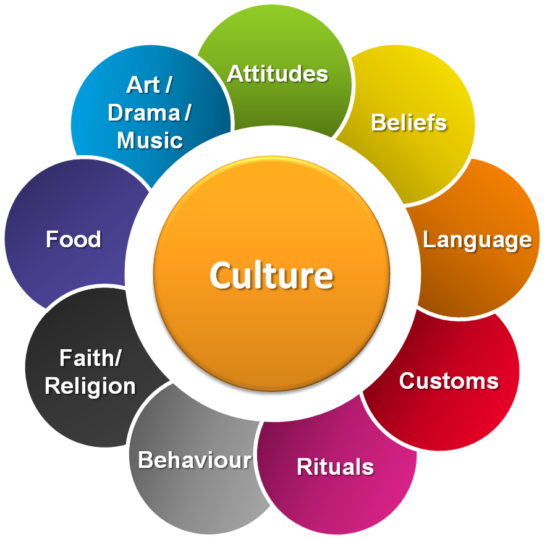Imagine walking into a bustling marketplace. You see people haggling over prices, artisans showcasing their crafts, and families enjoying their meals. It’s a scene of vibrant social interaction, but what drives these interactions? What makes people choose to behave in certain ways, prioritize certain goals, and believe in certain things? The answer lies in the concept of values.

Image: helpfulprofessor.com
Values, in sociology, are not just abstract ideas; they are the guiding principles that shape our actions, beliefs, and perceptions. They are the foundational stones of our social world, influencing everything from individual choices to societal structures. Understanding values is crucial because they hold the key to comprehending human behavior, cultural diversity, and social change. This article delves into the sociological perspective on values, exploring their defining characteristics, origins, and impact on our daily lives.
The Essence of Values: More Than Just Opinions
Values differ from opinions or preferences in several key ways. While opinions may be fleeting and changeable, values are deeply held convictions that remain relatively stable over time. They are not merely personal preferences; rather, they represent our fundamental beliefs about what is right, wrong, good, bad, desirable, or undesirable. These beliefs, in turn, influence our attitudes, behaviors, and interactions within society.
- Internal and External Influence: Values are shaped by both internal and external factors. Our personal experiences, upbringing, and cultural background profoundly influence our value system. Simultaneously, social institutions such as family, religion, education, and media play a significant role in shaping our understanding of what is valued in society.
- Hierarchy of Values: Our values are not all equally important. We usually have a hierarchy of values, with some being more central to our identity and decision-making than others. For example, a person might value honesty above all else, even if it means sacrificing personal gain.
- Influence on Social Norms: Values serve as the foundation for social norms, which are the unwritten rules of behavior that guide our interactions. For instance, the value of respect for elders translates into social norms such as greeting seniors politely and offering them assistance.
The Sociological Lens: Exploring the Origins and Types of Values
- Cultural Values: Cultures are rich repositories of shared values. They provide a sense of identity and belonging, guiding how members of a society perceive the world and interact with others. Cultural values can be as diverse as the cultures themselves, influencing everything from food preferences and clothing choices to gender roles and religious practices.
- Socialization: The process of socialization, which is how individuals learn the norms, values, beliefs, and behaviors of their society, plays a pivotal role in value formation. Through family, education, religion, and peer groups, we internalize societal values, shaping our own moral compass and social identity.
- Value Conflict: Societies are often characterized by value conflict, where different groups hold conflicting beliefs and values. Such conflicts can arise from differences in cultural background, socioeconomic status, political views, or religious beliefs. For example, one society might prioritize individual liberty, while another might emphasize collective responsibility. These conflicting values can lead to social tensions and political divides.
Beyond Theory: Values in Action
Values are not merely abstract notions; they have profound implications for our social world. They influence our choices, interactions, and even our societal structures.
- Individual Decision Making: Values guide our choices, both big and small. From deciding what to eat for dinner to choosing a career path, values inform our preferences and shape our actions. A person who values environmental sustainability might choose to eat a vegetarian diet or prioritize public transportation.
- Social Groups and Institutions: Values are the glue that holds social groups and institutions together. Shared values create a sense of belonging, purpose, and solidarity. They provide common ground for interaction and cooperation, fostering a sense of community.
- Social Change: Values are not static; they evolve over time, responding to societal changes, technological advancements, and intercultural exchange. Value changes often fuel social movements and shape the course of history. The rise of environmental awareness, the fight for gender equality, and the growing acceptance of diversity are all examples of how changing values have driven significant societal shifts.

Image: www.teeded-lomtoe.com
The Importance of Understanding Values in Sociology
Understanding values is essential for sociologists and other social scientists. It allows us to gain insights into:
- Human Behavior: Analyzing value systems helps us understand the motivations behind people’s actions, their perceptions of the world, and their relationships with others. This understanding is crucial for developing effective social policies and interventions.
- Cultural Diversity: Values shape cultural differences, providing a framework for understanding diverse perspectives, customs, and practices. This knowledge is essential for fostering intercultural communication, promoting tolerance, and building bridges between different societies.
- Social Change: By recognizing the dynamics of value change, we can better understand the drivers of social movements, political reform, and cultural shifts. This knowledge can help us navigate the complex social landscapes of the future.
Define Values In Sociology
Conclusion: Embracing the Complexity of Values
The concept of values in sociology is far from simple. They are complex and multifaceted, reflecting the intricate web of human interactions. Understanding these intangible forces that shape our actions, beliefs, and societies is crucial to navigating the social world. So, the next time you find yourself in a bustling marketplace, remember that beyond the surface level of social interactions, a deeper exploration reveals the powerful influence of values. This is where sociology comes in, providing a framework to comprehend the dynamics of human behavior and the complexities of our shared social existence.






